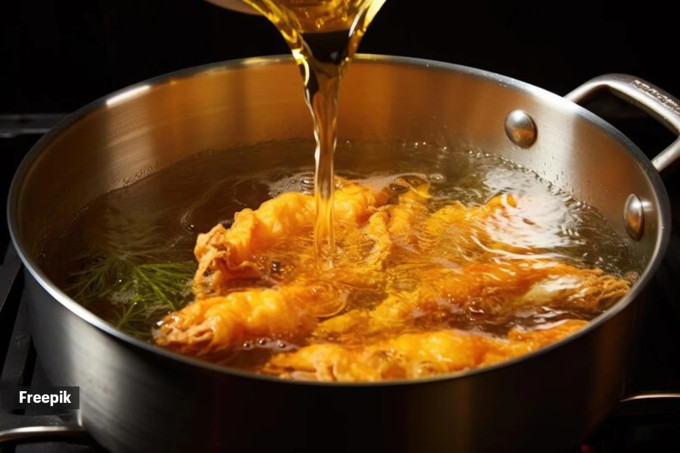Why repeatedly heating vegetable oils is putting your health at risk, according to ICMR guidelines
The Indian Council of Medical Research (ICMR) has recently warned that repeatedly heating vegetable oil can increase the risk of cancer.
According to the Dietary Guidelines for Indians released earlier this month, “The practice of ‘reusing’ vegetable oils for cooking, (which have been repeatedly heated during food preparations) is very common, both at homes and in commercial establishments. Repeated heating of vegetable oils/fat, results in oxidation of PUFA, leading to the generation of compounds which are harmful/toxic and may increase the risk of cardiovascular diseases and cancer.”

Ipsita Chakraborty, senior nutritionist at Hungry Koala explains, “If you repeatedly heat vegetable oils, it leads to the formation of harmful compounds such as polycyclic aromatic hydrocarbons (PAHs), aldehydes, and acrylamide. These compounds are formed through a series of chemical reactions, including oxidation, hydrolysis, and polymerisation, that occur when oils are subjected to high temperatures multiple times.”
Polycyclic aromatic hydrocarbons, she warns, are known carcinogens that can damage DNA and contribute to cancer development. Aldehydes, particularly acrolein, can also be toxic and irritating to the respiratory system. Additionally, acrylamide, which forms in starchy foods cooked at high temperatures, has been classified as a probable human carcinogen. These compounds pose significant health risks, emphasising the importance of safe cooking practices.
Particular types of vegetable oils that are more prone to producing harmful substances
Chakraborty says, “Oils with high levels of polyunsaturated fats, such as soybean, sunflower, and corn oils, are more prone to degradation and the formation of harmful substances when heated repeatedly. This susceptibility is due to the chemical structure of polyunsaturated fats, which contain multiple double bonds that are more reactive and prone to oxidation.”
 Using air fryers or ovens for baking instead of deep-frying can achieve a similar texture with significantly less oil (Source: Freepik)
Using air fryers or ovens for baking instead of deep-frying can achieve a similar texture with significantly less oil (Source: Freepik)
On the other hand, oils with higher levels of monounsaturated fats, like olive oil and canola oil, and those with higher saturated fat content, such as coconut oil and palm oil, are more stable at high temperatures. Factors contributing to the susceptibility of oils include their fatty acid composition, the presence of antioxidants, and the temperature and duration of heating.
Safe practices individuals can adopt to minimise the risks associated with reheating vegetable oils
To minimise the risks associated with the repeated heating of vegetable oils, individuals should adopt several safe practices.
“Firstly, I would advise to avoid reusing oil multiple times, especially if it has been heated to high temperatures. One must use fresh oil for each cooking session as it can significantly reduce the formation of harmful compounds,” Chakraborty adds.
Secondly, people should choose oils with higher smoke points and greater stability, she elaborates, such as olive oil, avocado oil, or coconut oil, can help mitigate risks. Additionally, incorporating cooking methods that require less oil, such as steaming, baking, or grilling, can reduce the need for high-temperature frying.
Monitoring the temperature during cooking and avoiding overheating the oil can also prevent degradation and the formation of toxic compounds.
Alternative cooking methods or oils that experts recommend to mitigate potential health risks
According to Chakraborty, using air fryers or ovens for baking instead of deep-frying can achieve a similar texture with significantly less oil. “Steaming and boiling are also excellent methods that preserve nutrients without requiring oil.”
When frying is necessary, using oils with high stability at high temperatures, such as avocado oil or ghee, can reduce the formation of harmful compounds. Cold-pressed oils are preferable as they retain more antioxidants that can counteract some of the harmful effects of heating.
Furthermore, integrating more raw or minimally processed foods into the diet can reduce the reliance on vegetable oils altogether.
Disclaimer: The copyright of this article belongs to the original author. Reposting this article is solely for the purpose of information dissemination and does not constitute any investment advice. If there is any infringement, please contact us immediately. We will make corrections or deletions as necessary. Thank you.

